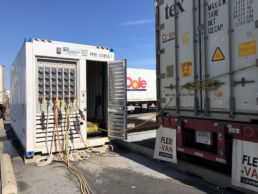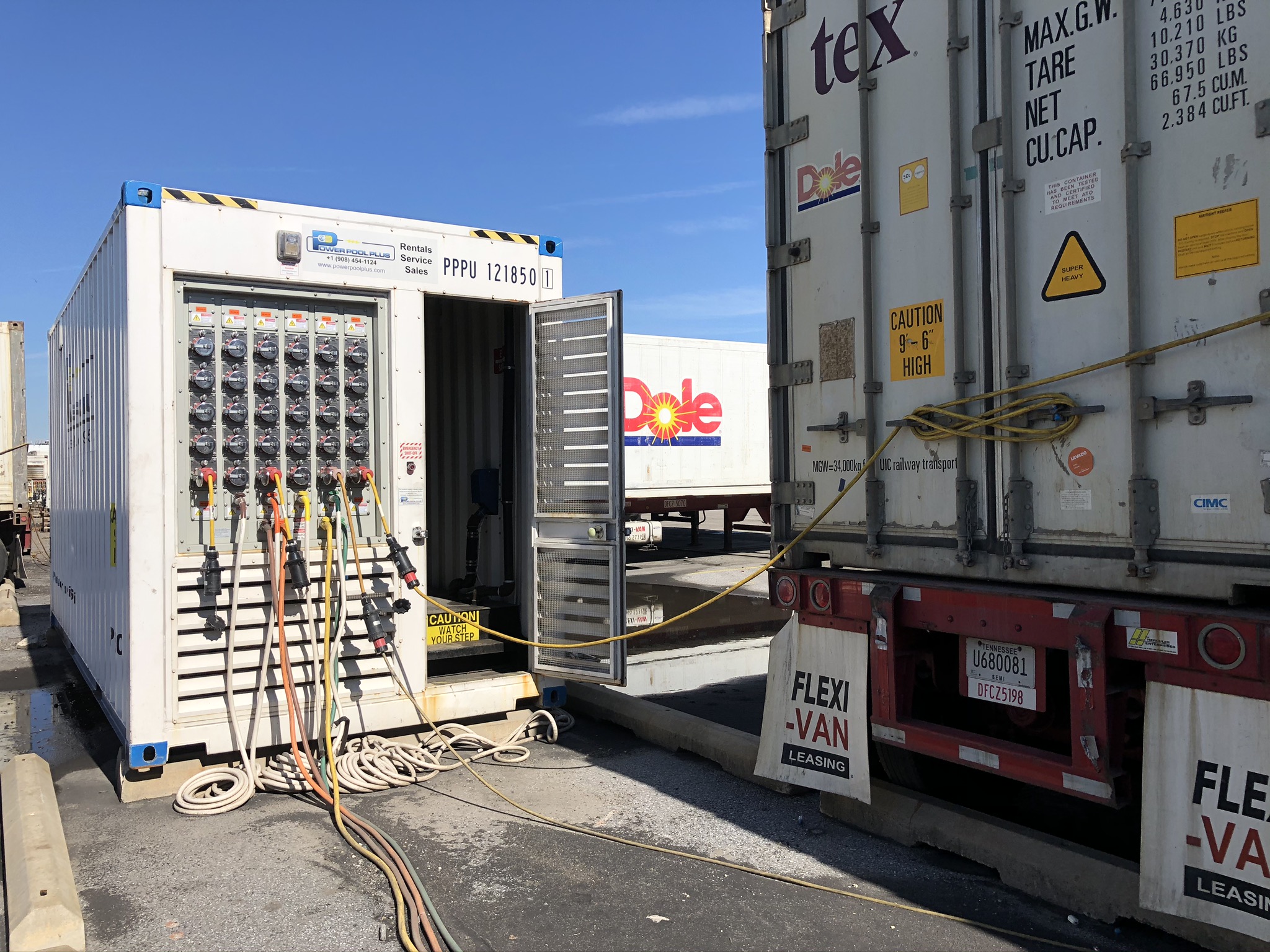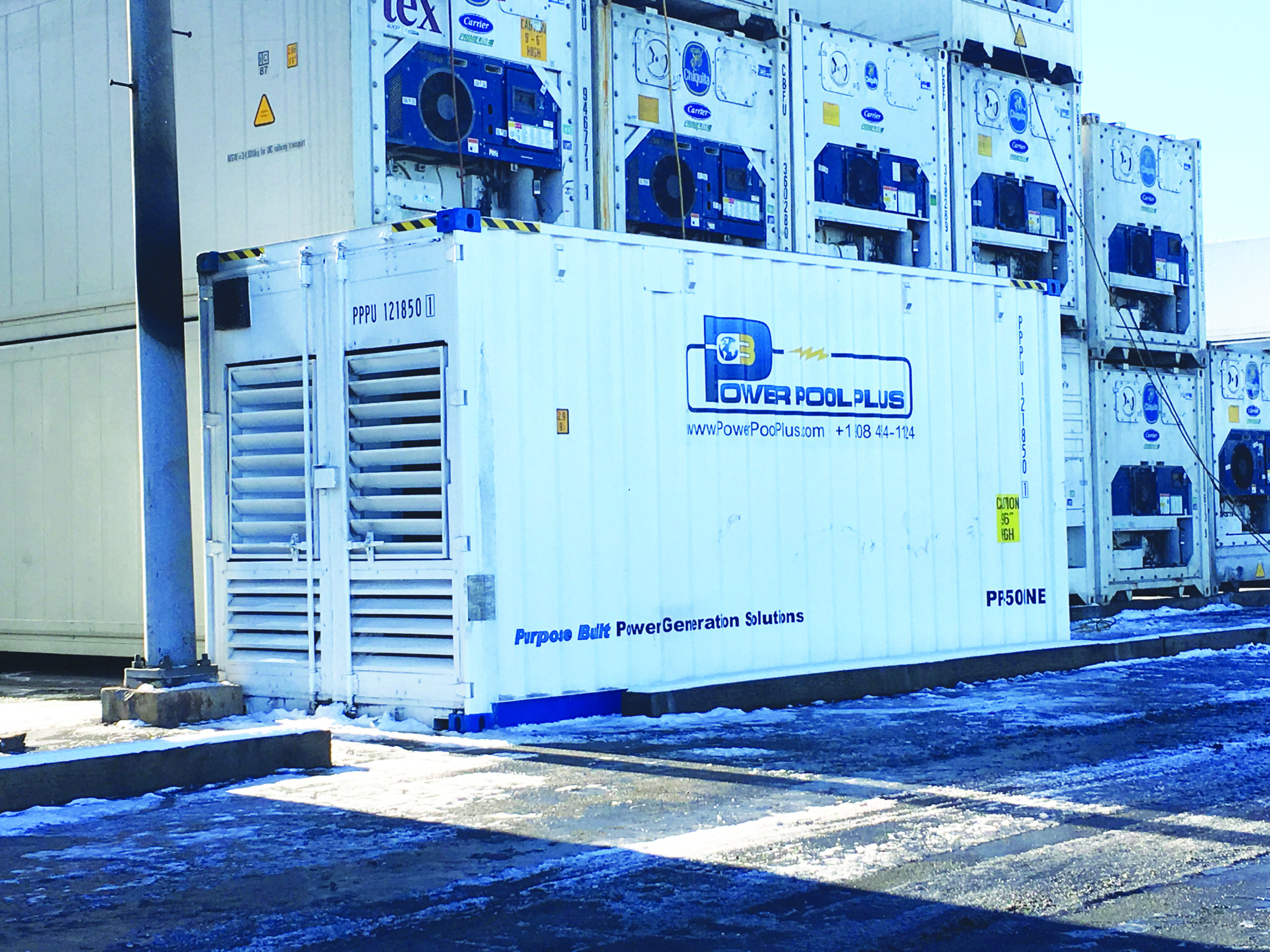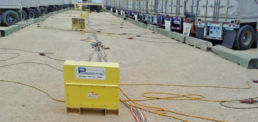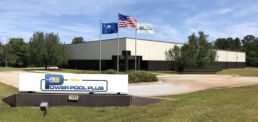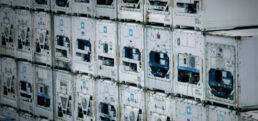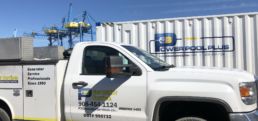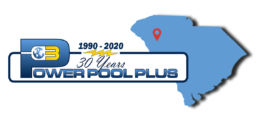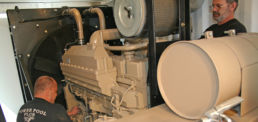Global Food Waste Prevention: Innovations and Insights
Addressing the Food Waste Crisis
Food waste is a pressing global issue, with about a third of the food produced annually going to waste, according to the United Nations’ Food and Agriculture Organization. A recent study from the University of Michigan reveals that nearly half of this waste, approximately 620 million metric tons, could be eliminated by implementing fully refrigerated food supply chains worldwide.
Aaron Friedman-Heiman, a master’s student at the University of Michigan’s School for Environment and Sustainability and Ross School of Business, spearheaded this study. He highlights the enormous potential for reducing food loss and waste through supply-chain optimization. The study estimates that inadequate cold-chain infrastructure is a major contributor to global food loss, leading to significant greenhouse gas emissions.
Environmental Impact: Poor cold-chain infrastructure results in the emission of 1.8 billion tons of carbon dioxide equivalents, accounting for 28% of annual greenhouse gas emissions in the U.S. Therefore, improving warehousing and other aspects of the cold chain is crucial for minimizing food waste and mitigating its environmental impact.

The Importance of Cold-Chain Logistics in Food Preservation
Cold-chain logistics is vital in the food industry. It involves the transportation of temperature-sensitive goods in a temperature-controlled environment. This process ensures the freshness and safety of perishable goods, extending their shelf-life, and reducing the risk of spoilage and waste.
Global Food Waste: A Challenge and Opportunity
Global food waste has significant environmental, economic, and social implications. Yet, it also presents an opportunity. By improving cold-chain logistics, we can reduce food waste and its impacts, including:
- Increased greenhouse gas emissions
- Economic losses for producers and consumers
- Wasted resources used in food production
- Increased pressure on land and water resources
- Threats to food security and sustainable development
Advancements in Cold-Chain Technology
Cold-chain logistics technology has seen significant advancements in recent years. These improvements have the potential to revolutionize the way we handle perishable goods. From IoT devices to AI-powered analytics, these technologies are making cold-chain operations more efficient and reliable. They help maintain the quality of food products, reducing waste, and promoting sustainable living.
Refrigerated Transport and Its Impact
Refrigerated transport plays a crucial role in the cold-chain. It ensures that perishable goods are kept at the right temperature during transit, preserving their quality and safety. With advancements in refrigeration technology, transport vehicles can now maintain more consistent temperatures. This reduces the risk of spoilage and contributes to global food waste prevention.
The Role of Reefer Generators in Cold-Chain Efficiency
Refrigerated generators (aka reefers) are another key component of the cold-chain. They provide the power needed to keep refrigeration units running during transport. By improving the efficiency of these generators, we can reduce energy consumption and environmental impact. This also leads to cost savings, making cold-chain operations more sustainable and economically viable.
Resource Management for Sustainable Cold-Chain Operations
Effective resource management is key to sustainable cold-chain operations. It involves optimizing the use of energy, equipment, and manpower to reduce waste and improve efficiency. By adopting best practices in resource management, businesses can reduce their environmental footprint and achieve significant cost savings, making their operations more sustainable and profitable.
Implementing IoT and AI for Smarter Logistics
The use of IoT and AI in cold-chain logistics is a game-changer. These technologies enable real-time monitoring and predictive analytics, enhancing the efficiency and reliability of operations. With IoT devices, businesses can track the condition of their goods in real-time. AI, on the other hand, can analyze this data to predict potential issues and suggest preventive measures.
Real-Time Data Tracking and Its Benefits
Real-time data tracking provides businesses with up-to-the-minute information about their operations, enabling them to make informed decisions. By tracking data in real-time, businesses can quickly identify and address issues. This reduces the risk of spoilage and waste, contributing to global food waste prevention and sustainable living.
Overcoming Cold-Chain Logistics Challenges
Despite advancements in cold-chain logistics technology, several challenges remain. These include maintaining temperature control, ensuring energy efficiency, and addressing the last-mile delivery problem. However, with continuous innovation and collaboration among stakeholders, these challenges can be overcome, paving the way for more efficient and sustainable cold-chain operations.
Addressing the Last-Mile Delivery Problem
The last-mile delivery problem involves maintaining the quality and safety of perishable goods during their final journey to the consumer. Innovative solutions, such as mobile cold storage and smart containers, are being developed to address this issue. These technologies help ensure that perishable goods reach consumers in optimal condition, reducing food waste and promoting sustainable living.
Case Studies: Success Stories in Cold-Chain Logistics
Several companies have successfully implemented advanced cold-chain logistics technology to reduce food waste. For instance, some have leveraged IoT and AI to enhance their operations, resulting in improved efficiency and reduced spoilage. Others have used refrigerated transport generators to maintain optimal temperatures during transport. These success stories serve as a testament to the potential of cold-chain logistics technology in addressing global food waste.
The Future of Cold-Chain Logistics Technology
The future of cold-chain logistics technology looks promising. With continuous innovation and advancements in technology, the sector is poised to become more efficient and sustainable. The integration of IoT, AI, and blockchain technology is expected to revolutionize the industry, offering real-time tracking, predictive analytics, and enhanced traceability.
Moreover, the use of sensor technology and smart containers could further improve the quality and safety of perishable goods. These advancements will not only reduce food waste but also contribute to cost savings and improved food security.
Conclusion: The Role of Stakeholders in Reducing Food Waste
The fight against global food waste is a collective effort. Stakeholders across the supply chain, from farmers to retailers, have a crucial role to play. By adopting advanced cold-chain logistics technology and sustainable practices, they can significantly reduce food waste and contribute to a more sustainable future.
Moreover, consumers, policymakers, and technology providers also have a part to play. Through education, regulation, and continuous innovation, we can make a significant impact on global food waste prevention.al food waste prevention.
Proudly Made in the United States of America!
Power Pool Plus is proud to manufacture the entirety of our product line in the United States of America. All of our Power Packs and PortaPacks™ are built from the ground up in our Greenwood, South Carolina Manufacturing Headquarters, creating over 20 new jobs for the local economy. With most companies choosing to offshore production over the past few decades, we are especially proud to double down on local investment by manufacturing our products domestically and employing American workers. In addition to our production team, our entire sales and service staff are based out of New Jersey and South Carolina. Whether you’re looking to purchase or rent on of our standard units or have a custom-built power supply created specifically to fit the needs of your operation, you can be sure that highly skilled and dedicated American workers power the process from beginning to end. We also encourage current reefer genset owners to take advantage of our re-manufacturing services to breathe new life into their units. We'll be glad to work on them even if they were not originally manufactured by us! We invite you to explore our entire product line!
Know when to replace your power cables
Check your power cables for safety and functionality
Without quality power cables to transfer electricity from the power pack generator to reefer racks or remote receptacle trees, keeping a reefer yard filled with refrigerated containers would be impossible.
Yet even the best-made cables require proper maintenance to ensure functionality and worker safety.
The ground cabling we use is dual-jacketed to protect the inner copper strands from damage. Yet, the constant dragging of cables across asphalt and gravel yards can take its toll.
Using color-contrasting layers provides a visual indicator. For example, when the outer jacket is worn through, cut, or scraped, the inner jacket reveals a distinctly white visual warning that it may be time to replace the cable.
This visual awareness provides easy identification of abrasion before reaching the copper stranding to ensure the safety of the operators.
See the image below provided by our friends at Trystar cable, which highlights the dual-jacket layers.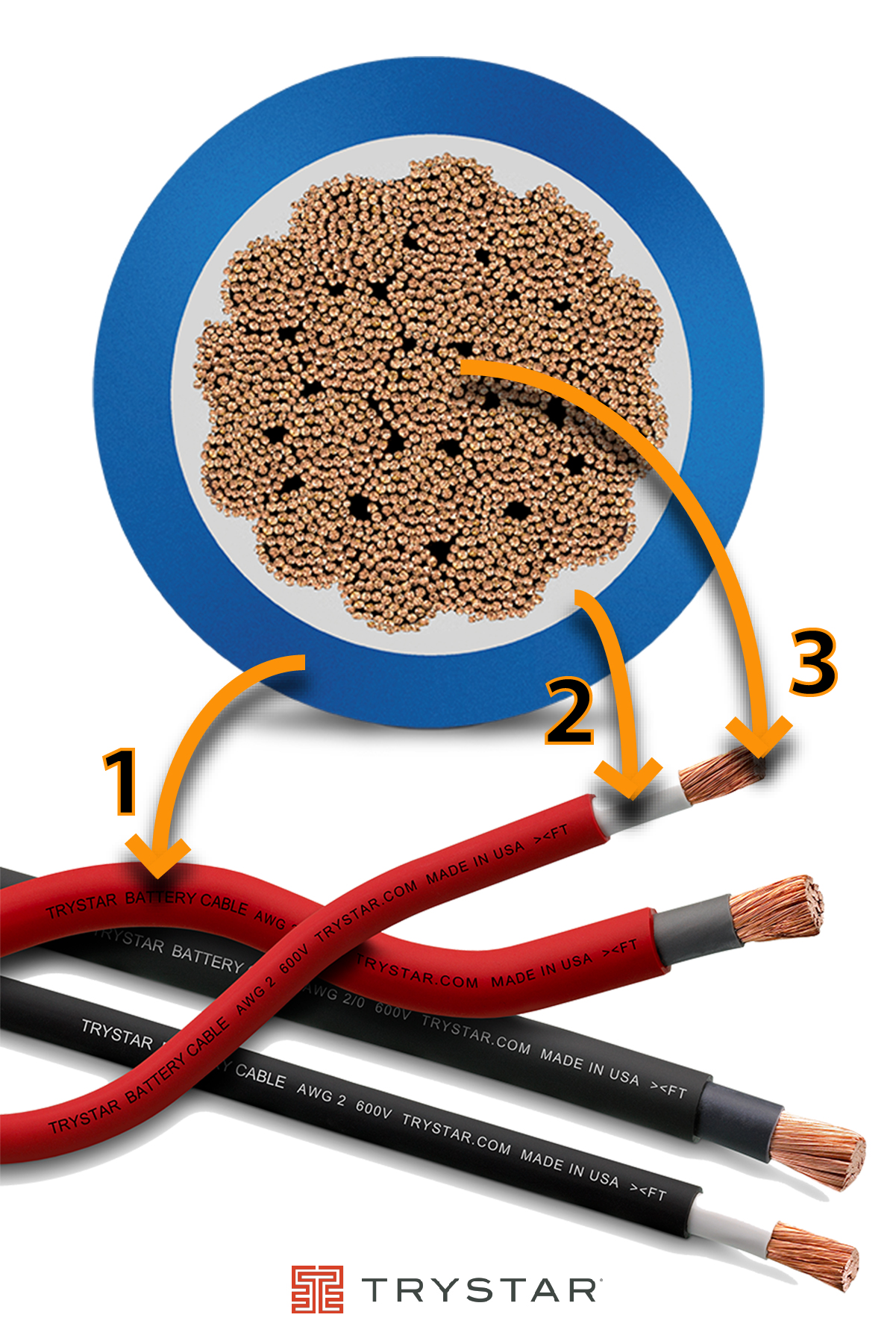
- Outer Jacket
- Inner Jacket
- Copper strands
A best practice when handling ground cables is to pick them up and move them into position to avoid unnecessary scuffs. Protect them from moving vehicle traffic, do not allow them to lay in pooling water, and inspect them frequently for damage.
Get a quote today, on your next Purpose-Built Power Pack.
Ted Shelson
VP Marketing
Power Pool Plus
How we're meeting today's supply chain challenges
An unprecedented challenge.
COVID shutdowns and lost labor time, shipping delays, crippling storms, and raw material shortages - Nearly all suppliers and end-users are experiencing challenges due to the inability to secure the parts and materials needed for timely production.
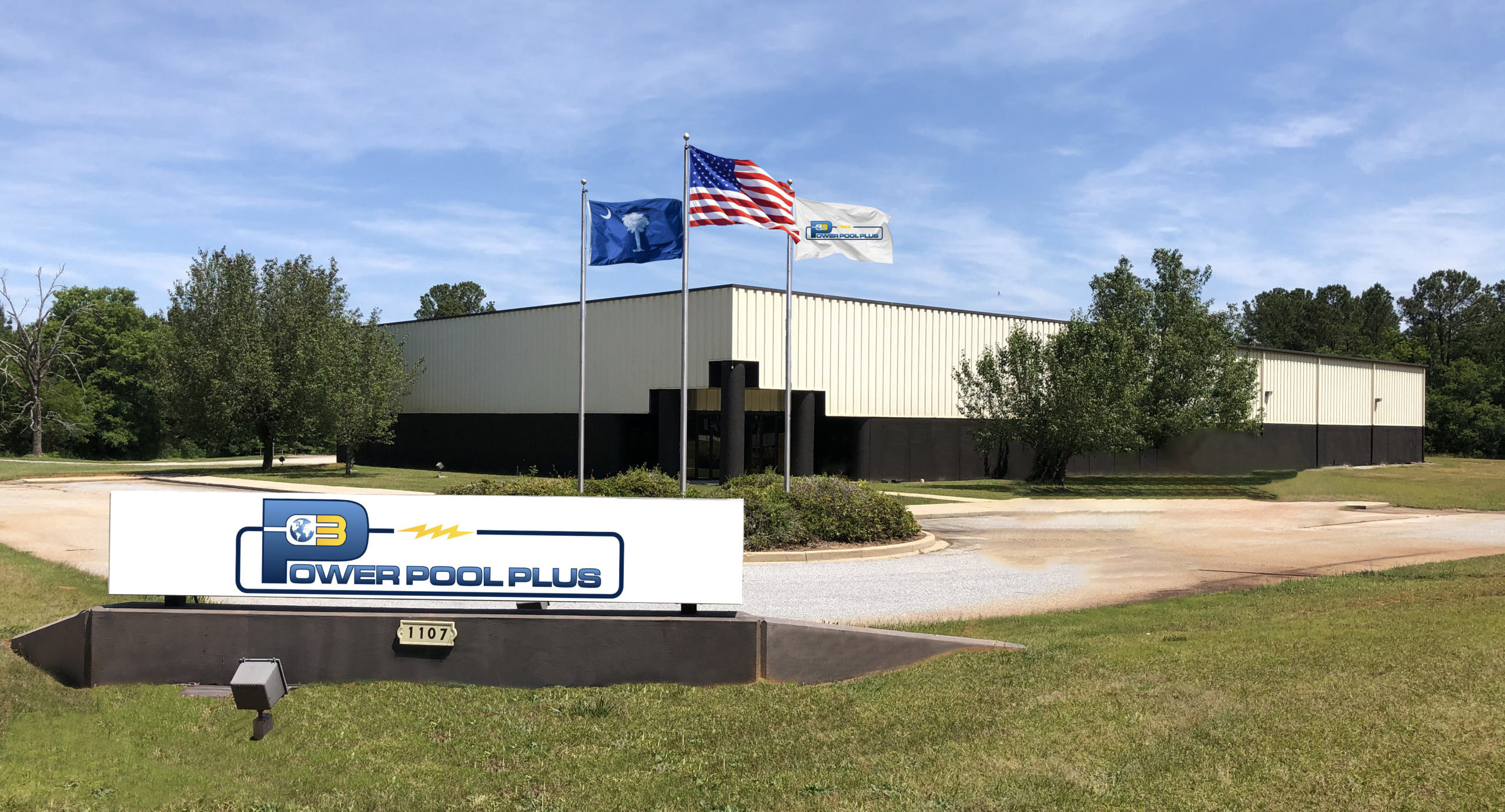
Power Pool Plus is no exception.
Even with the increased manufacturing capacity from our newly opened Greenwood, South Carolina plant, which affords us an additional 30,000sqft on 12+ acres of manufacturing space, delays in receiving raw materials for production prove problematic and negate any impact from this infrastructure investment.
For example, steel and electrical cable, two of the most used materials in our Power Packs, usually promised from our vendors in a few days, is now turning into 6-8 weeks or more. Our challenges are their challenges, as they count on commitments from their suppliers to turn products. It’s a vicious cycle.
According to a recent Wall Street Journal Report, up to 40 vessels anchored off Southern California ports had been waiting for dock space, which has since ebbed to around 17 earlier this week. While that is still too large a number, the backlog continues to shrink as ports and trucking catch up with the increased volumes.
But still, we are finding various steel products disappearing off our vendors’ shelves. And the availability of 20 and 40-ft high cube containers is also difficult to find at once typical prices. We continue to order in higher quantities than usual to stay ahead, so we have inventory to keep up with the demand.
While inflation has primarily been kept in check, there is talk about possible increases later in the year.
The good news is (there's always some good news),
as the world awakens from its COVID-induced sleep, it is clear that the demand for goods is strong. Consumers are looking to buy, and industries are ready to make investments to meet the demand. Refrigerated transport is no exception. As the demand for fresh produce increases, the need for power at ports to manage reefer throughput will remain high.
Our power packs are needed, orders are up, and accordingly, we have made investments in our production facilities to stay ahead.
So be patient. These delays will pass, and a sense of normalcy will resume. Until then, please know that all of us at Power Pool Plus are working hard to provide you with the finest Purpose-Built Reefer Power Genset on the market while remaining at a reasonable price to help your operation succeed.
Suppose your reefer management team is looking to increase productivity this year with new Power Pool Plus power packs. In that case, we highly suggest placing orders as soon as possible to minimize potential delays and expected increases in material costs.
Get a quote today, on your next Purpose-Built Power Pack.
Ted Shelson
VP Marketing
Power Pool Plus
A Perfect Storm flooding reefer terminals (and it's not water)
With the ever-increasing demand for year-round fresh fruits and vegetables, refrigerated containers full of perishable produce are hitting US ports at staggering rates. The need for ports to accept these reefers is demanding. But will this flood of reefers swamp terminal operators?
Why are refrigerated containers stuck in port?
In some cases, container ships arrive into port with more reefer to off-load than initially forecast, putting an incredible strain on the port operator to round up enough reefer receptacles for a load of containers.
Under normal times this may not be a problem. But these are not normal times.
Increased refrigerated container traffic combined with multiple ships arriving back-to-back allows little time for some port operators to move reefer off the terminal before the next ship arrives. Compounding these challenges is the decreased availability of truckers due to COVID. Without truckers to haul this cargo, everything sits - preventing terminal operators from moving reefer out of the port quickly.
But unlike dry containers that can be stacked and positioned just about anywhere in the yard, refrigerated containers require a constant supply of electricity to keep the perishable goods within temperature specs. Every reefer unloaded onto the terminal needs to quickly find an available electrical connection. The financial risk of cargo spoilage is real and is a challenging responsibility for port operators.
Here's a solution.
Ideally, moving these perishable loads out of the port as quickly as possible is the best solution. But when that's not an option, diesel-powered generators, called Power Packs, offer port operators the flexibility to ramp up reefer capacity quickly to handle sudden increases in container throughput. Power Packs uniquely accommodate thirty to fifty or more reefer cord connections. And because they are diesel-powered, they can be positioned anywhere space is available.
- Through short term rentals, terminal operators can quickly add capacity during traditional spikes in reefer throughput.
- Longer rental terms can help operators mitigate the disruptions from lengthy port construction projects.
- Custom designed power packs configured to meet an operators' unique requirements can be purchased for a permanent reefer power solution.
To weather the flood of reefer hitting your dock, Power Pool Plus maintains a fleet of power packs and their highly versatile cousin, PortaPacksTM, to help manage and keep the refrigerated containers safe while under the terminal operator's care.
How many reefer plugs do you need?
Ted Shelson
VP Marketing
Power Pool Plus
4 Essential Troubleshooting Tips for Power Packs
Reefer operators have only one thing on their mind, make sure that the refrigerated cargo under their care is kept safely to spec.
Having a diesel genset go down is never an option. But understanding a few of the issues that may cause a diesel generator to fail, may help to save the refrigerated loads and avoid a service call in the middle of the night.
Thankfully, most power pack failures are quickly resolved, and with some basic knowledge, can be managed successfully without having to wait for service.
To help your team through some of the most common issues, here are a few troubleshooting tips.
Power Pack will not start
- Check that the battery disconnect switch is closed, and the batteries are charged.
- Are the Emergency Stop Buttons
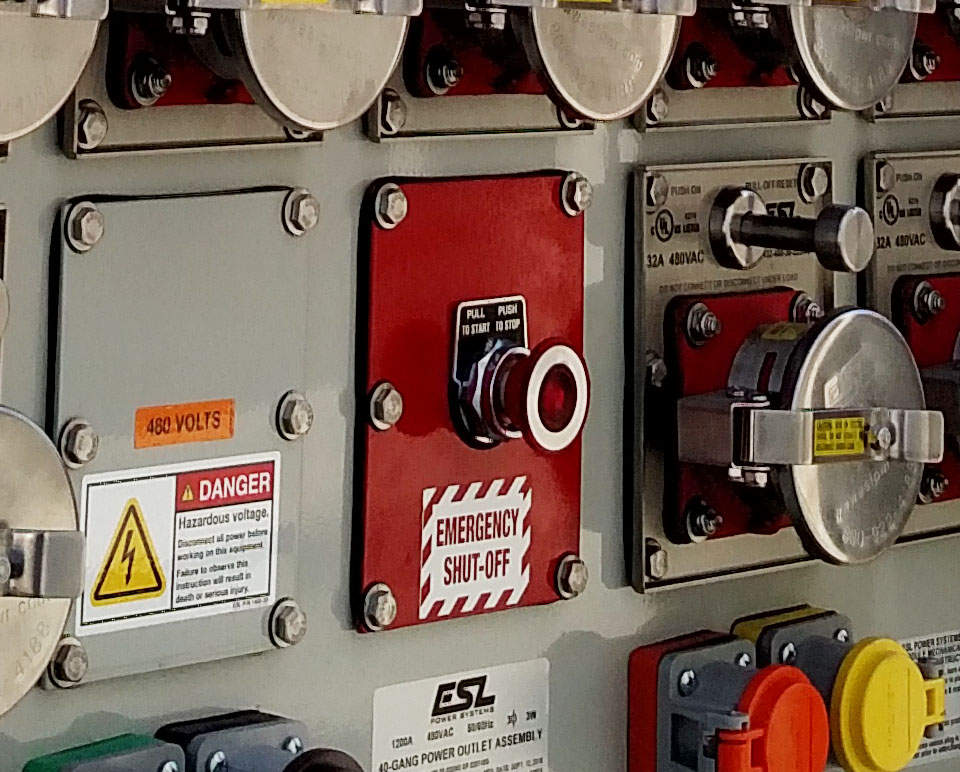 engaged (pushed in)? Pulling them out may start the generator. Ensure that no one is working on the generator or is inside the container enclosure before pulling out any emergency stop button. There are two E-Stop buttons - one located outside the main door and another inside near the control panel.
engaged (pushed in)? Pulling them out may start the generator. Ensure that no one is working on the generator or is inside the container enclosure before pulling out any emergency stop button. There are two E-Stop buttons - one located outside the main door and another inside near the control panel. - Is there fuel in the tank?
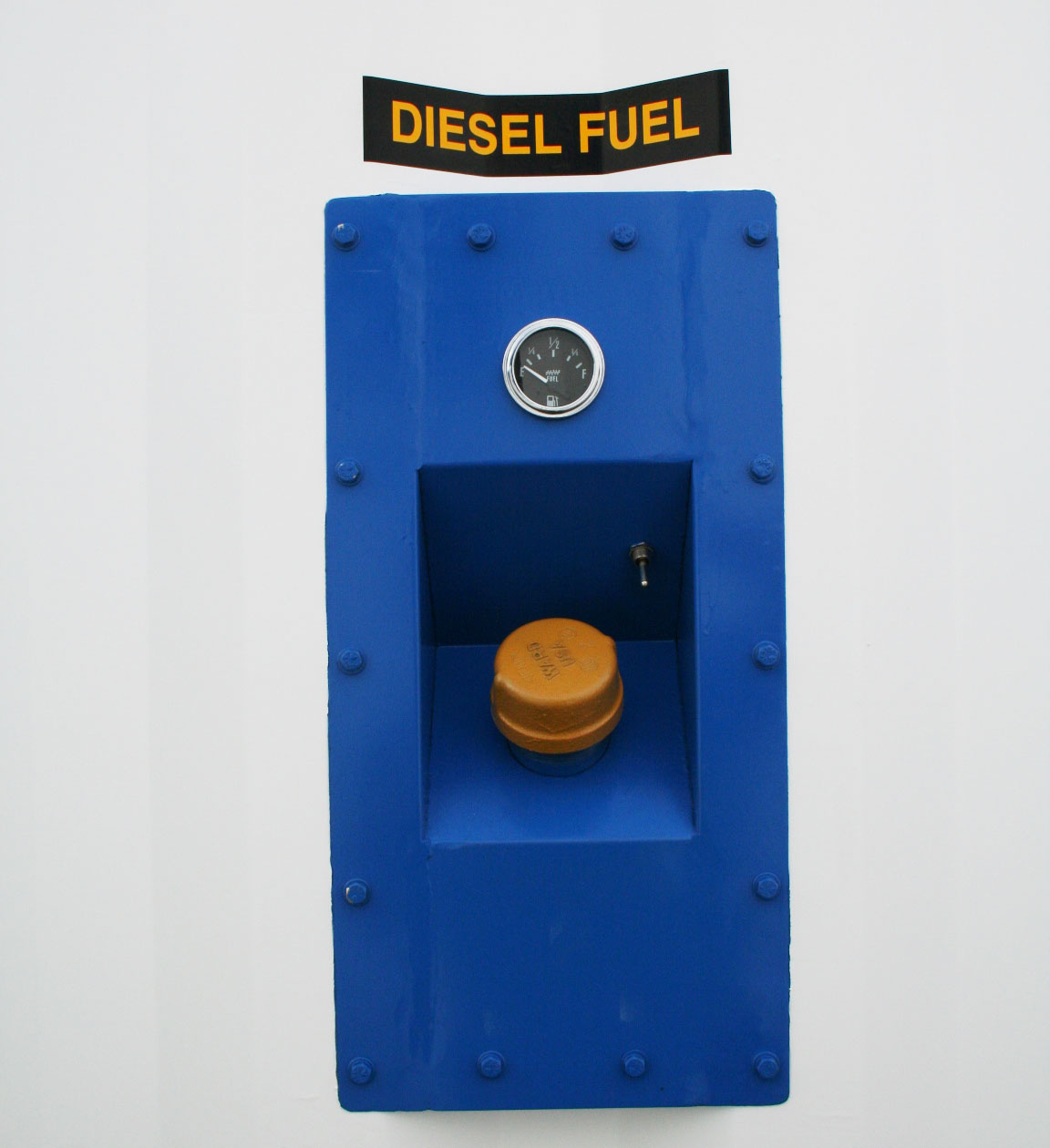 Yes, it may seem obvious, but our road service team has been called out many times only to discover a power pack that was allowed to run out of fuel. Note: after refueling, prime all fuel filters with fuel before restarting the engine. This will ensure a quick start and protect the fuel pump from damage.
Yes, it may seem obvious, but our road service team has been called out many times only to discover a power pack that was allowed to run out of fuel. Note: after refueling, prime all fuel filters with fuel before restarting the engine. This will ensure a quick start and protect the fuel pump from damage.
Power Pack shuts down without warning
- Fuel issues are the leading cause of power pack failures in ports. Poor fuel quality means clogged fuel filters. Change fuel
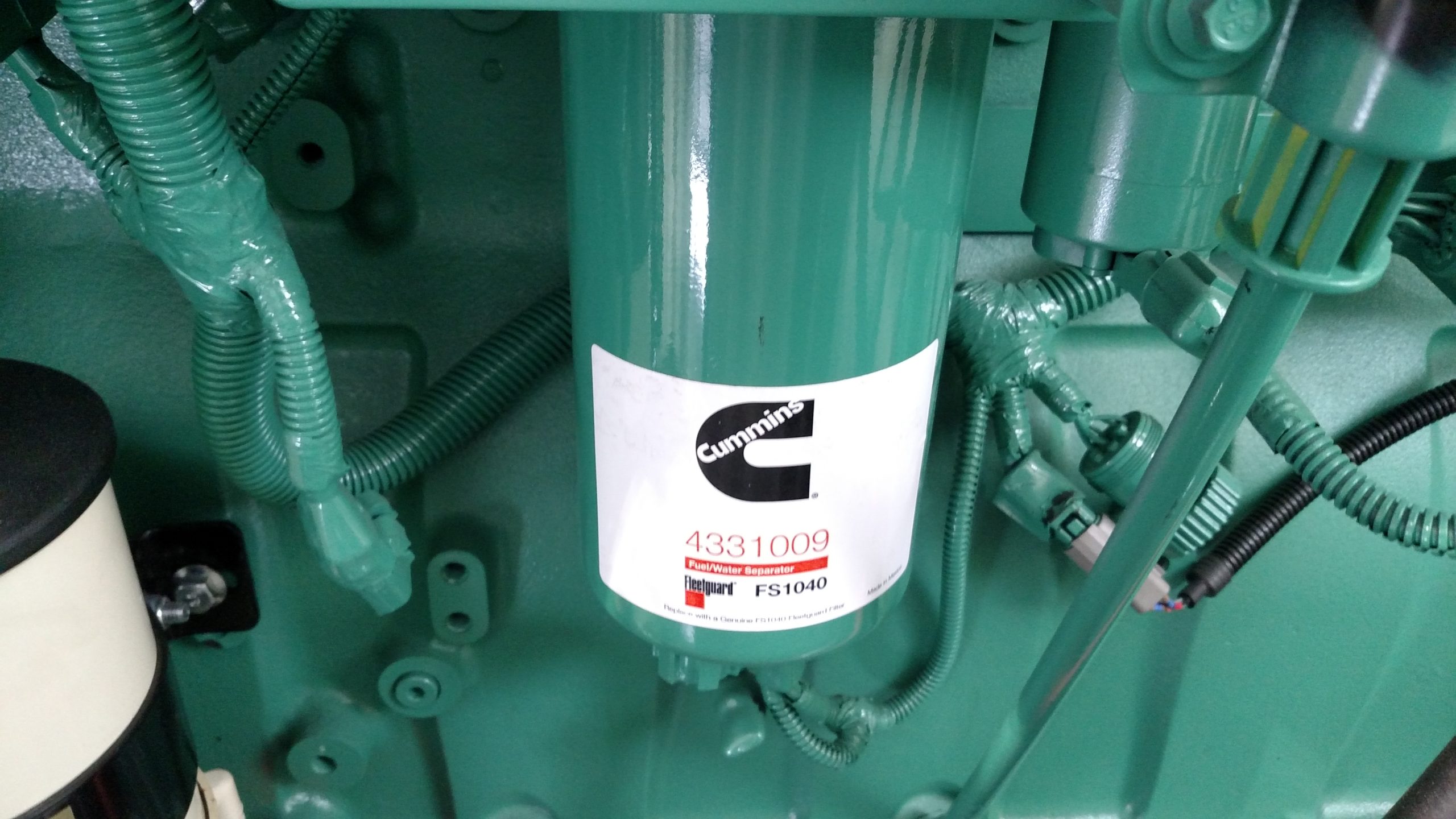 canisters and elements, and drain and clean fuel/water separators frequently. Prime all fuel filters.
canisters and elements, and drain and clean fuel/water separators frequently. Prime all fuel filters. - Overloading power packs is a common problem, and can easily lead to generator shut down and loss of the connected load. It happens when the
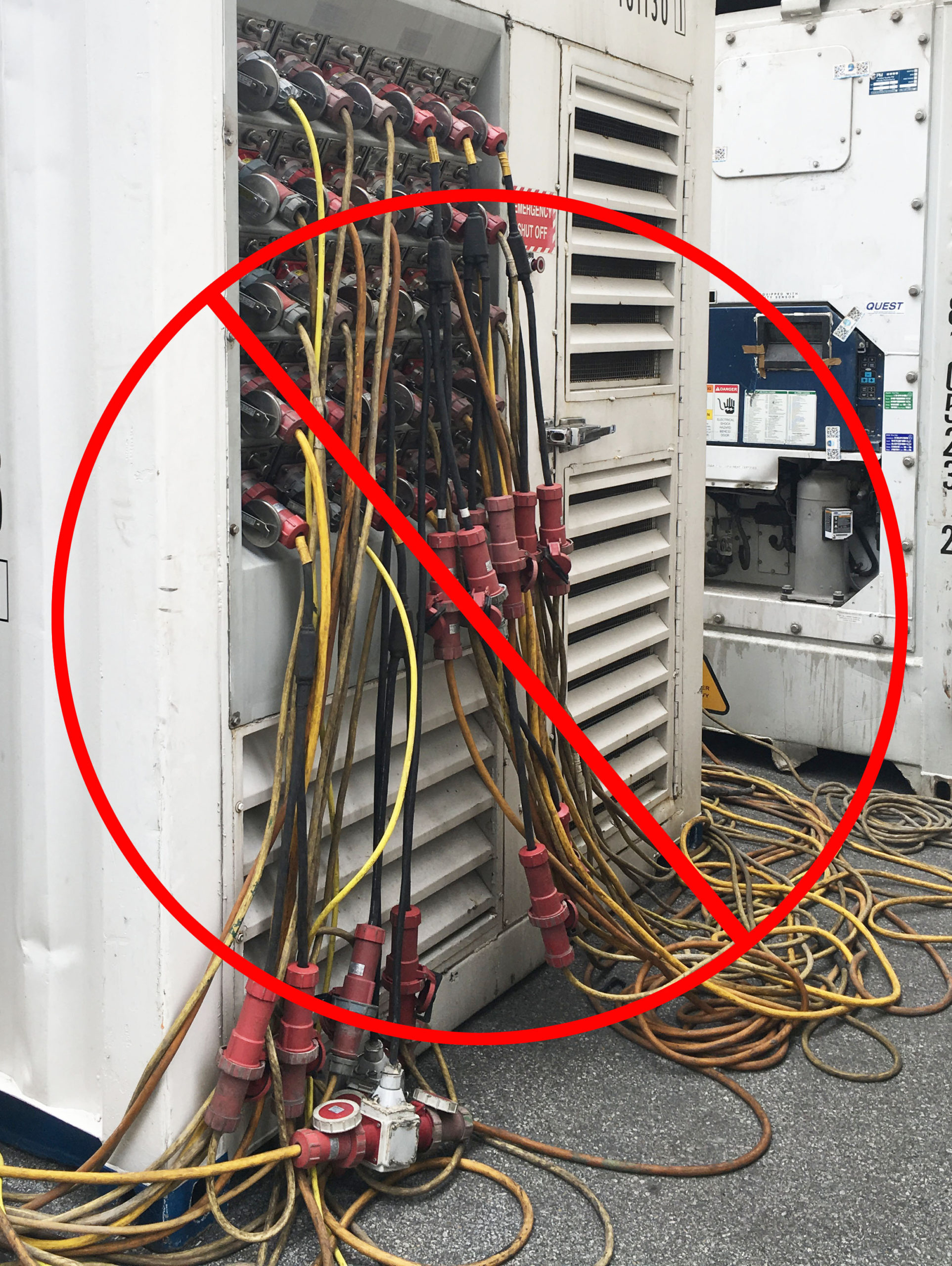 reefer operator has more refrigerated containers to keep powered than available receptacles on the power pack. Beware of commonly used splitters to add capacity to power pack receptacle panels. An over-zealous operator may be inclined to connect as many as double the rated capacity of the power pack. It won’t take long to exceed the limitations of the power pack causing the main breaker to trip and cutting electrical current from the generator to the plugs.
reefer operator has more refrigerated containers to keep powered than available receptacles on the power pack. Beware of commonly used splitters to add capacity to power pack receptacle panels. An over-zealous operator may be inclined to connect as many as double the rated capacity of the power pack. It won’t take long to exceed the limitations of the power pack causing the main breaker to trip and cutting electrical current from the generator to the plugs. - Low oil level, low coolant level, and other alarm faults can cause your power pack to shut down to protect itself from damage. Before each startup, or at regular intervals during 24hr run cycles, visually inspect for leaks and worn parts, check and top off all fluids to proper levels, adjust loose belts or replace as necessary, and remove debris from the container compartment.
Power Pack runs but does not produce electrical power
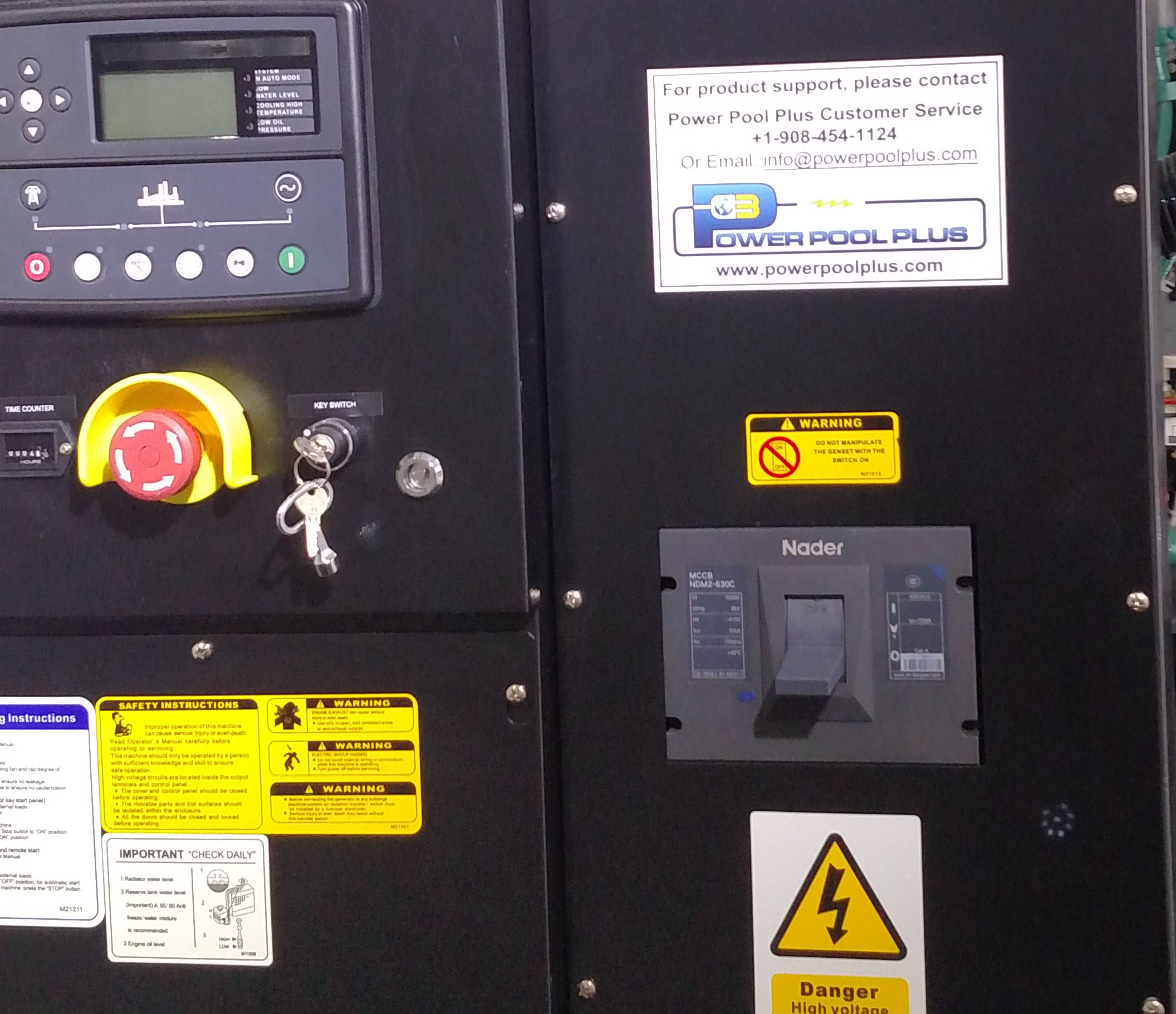
- Check that the main breaker is engaged. Every power pack is different, but commonly located near the main control panel. Best practice is to engage the main breaker AFTER starting the engine.
Power Pack produces black exhaust smoke when running
- Black exhaust smoke is a common sign of wet-stacking caused by under-loading a generator. Power Packs come in many sizes,
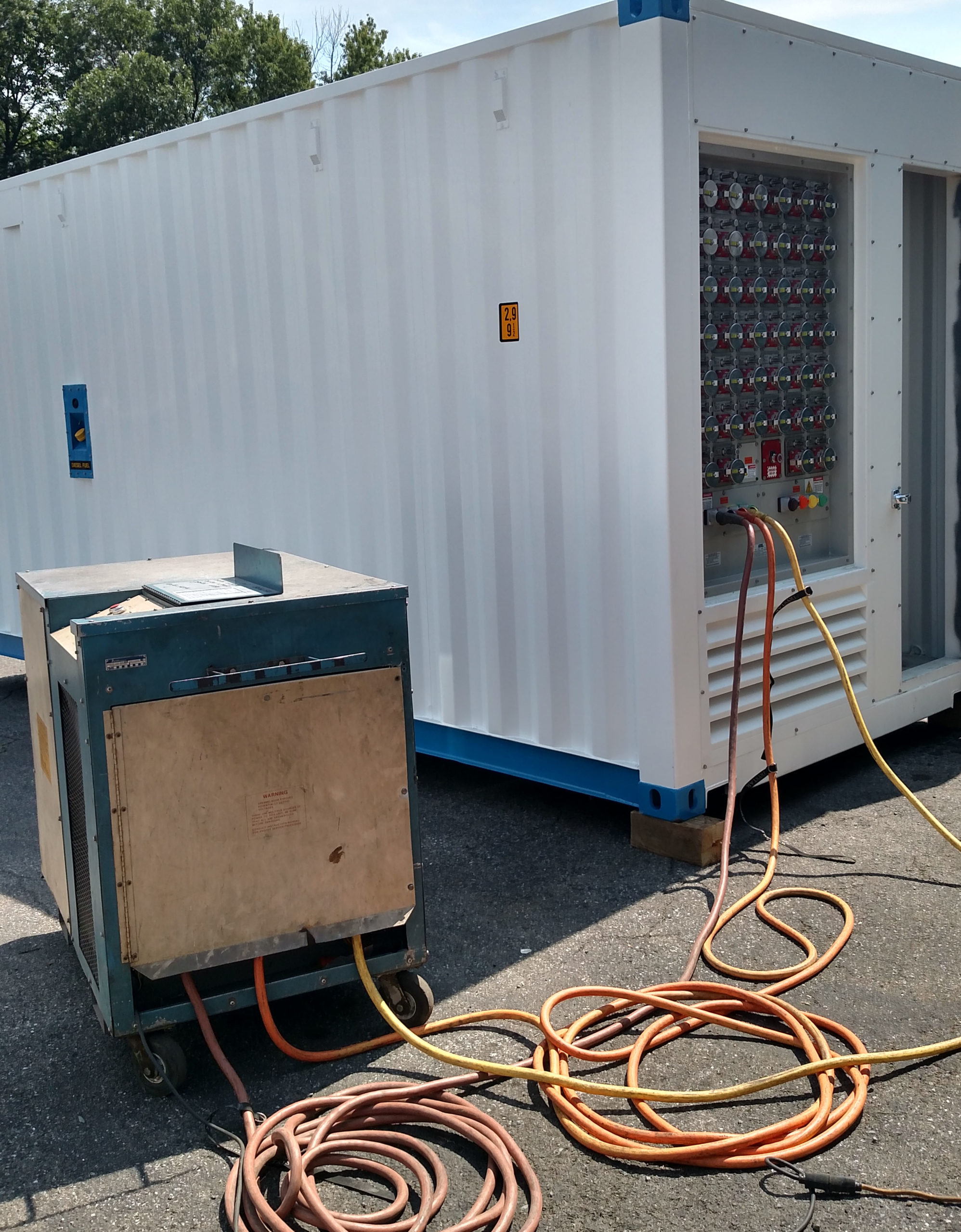 typically identified by plug count (20-plug, 30-plug, 40-plug, and so on). They can carry a load equal to that number of refrigerated containers. Connecting less than half that amount over long periods is equivalent to starting your car and letting it run idle all day long, which is not ideal for the vehicle. A diesel engine will create soot, or unburnt fuel when operated like this. Too much of this carbon buildup will rob the diesel engine of vital power. Loading up the power pack to its capacity should clear most black smoke issues. If not, a load bank may be needed to replicate or add additional load to the power pack. Power Pool Plus can assist in this.
typically identified by plug count (20-plug, 30-plug, 40-plug, and so on). They can carry a load equal to that number of refrigerated containers. Connecting less than half that amount over long periods is equivalent to starting your car and letting it run idle all day long, which is not ideal for the vehicle. A diesel engine will create soot, or unburnt fuel when operated like this. Too much of this carbon buildup will rob the diesel engine of vital power. Loading up the power pack to its capacity should clear most black smoke issues. If not, a load bank may be needed to replicate or add additional load to the power pack. Power Pool Plus can assist in this.
Final Thought:
Power Packs are essential equipment for nearly every reefer operator. Setting aside even a small amount of time to understand a few of these concerns and how to address them quickly will go a long way in protecting your power pack and the valuable refrigerated load connected to it.
Questions? Contact Us.
The Power Pool Plus Service Team is available anytime to help keep your power pack reefer gensets running at their best, day or night.
Ted Shelson
VP Marketing
Power Pool Plus
Power Pool Plus, Inc. expands manufacturing with new operation in South Carolina
We are very excited to announce our plans to establish a new manufacturing center in Greenwood, South Carolina.
A multi-million dollar investment, projected to create 21 new jobs, will enable our company to service the increased demand for our manufactured generator products and expand our contract metal fabrication operations.
This new 30,000 sq ft building located on 12 acres provides the space needed to effectively increase our production capability, yet ensure sufficient capacity for future expansion.
The present location in Alpha, New Jersey, will remain fully staffed as the Northeast Rental and Service Center and continue with its primary focus on serving all northeast reefer cargo operators from northern Virginia to Maine with exceptional service and support.
All current manufacturing orders will be completed in our New Jersey facility. All new orders are scheduled to begin production in South Carolina early in the fourth quarter of 2020.
Over the past 30 years, Power Pool Plus has adapted to change. This latest move reflects a recognition that refrigerated cargo transportation is growing, and the demand for reliable purpose-built power generation equipment has never been higher.
Please look for more details and information in the coming weeks/months.
Ted Shelson
VP Marketing
Power Pool Plus
Is your fuel killing your power pack? How to mitigate fuel quality issues.
Bad fuel kills power packs. Don't allow poor fuel quality to affect power pack performance.
Poor fuel quality is the number one cause for power pack failure and engine shutdown. Contaminated fuel in storage tanks can create particulate that becomes suspended in the fuel during power pack transportation, movement, or refueling. This particulate restricts fuel flow by clogging fuel filtration systems.
Fuel related issues can be more than an inconvenience. Clogged filters can damage expensive fuel pumps and injectors, not to mention the downtime associated with these repairs.
How does fuel contamination happen?
Many outside elements can affect fuel quality, either by the introduction of debris or through the degradation of the fuel itself. Here are some common challenges that power 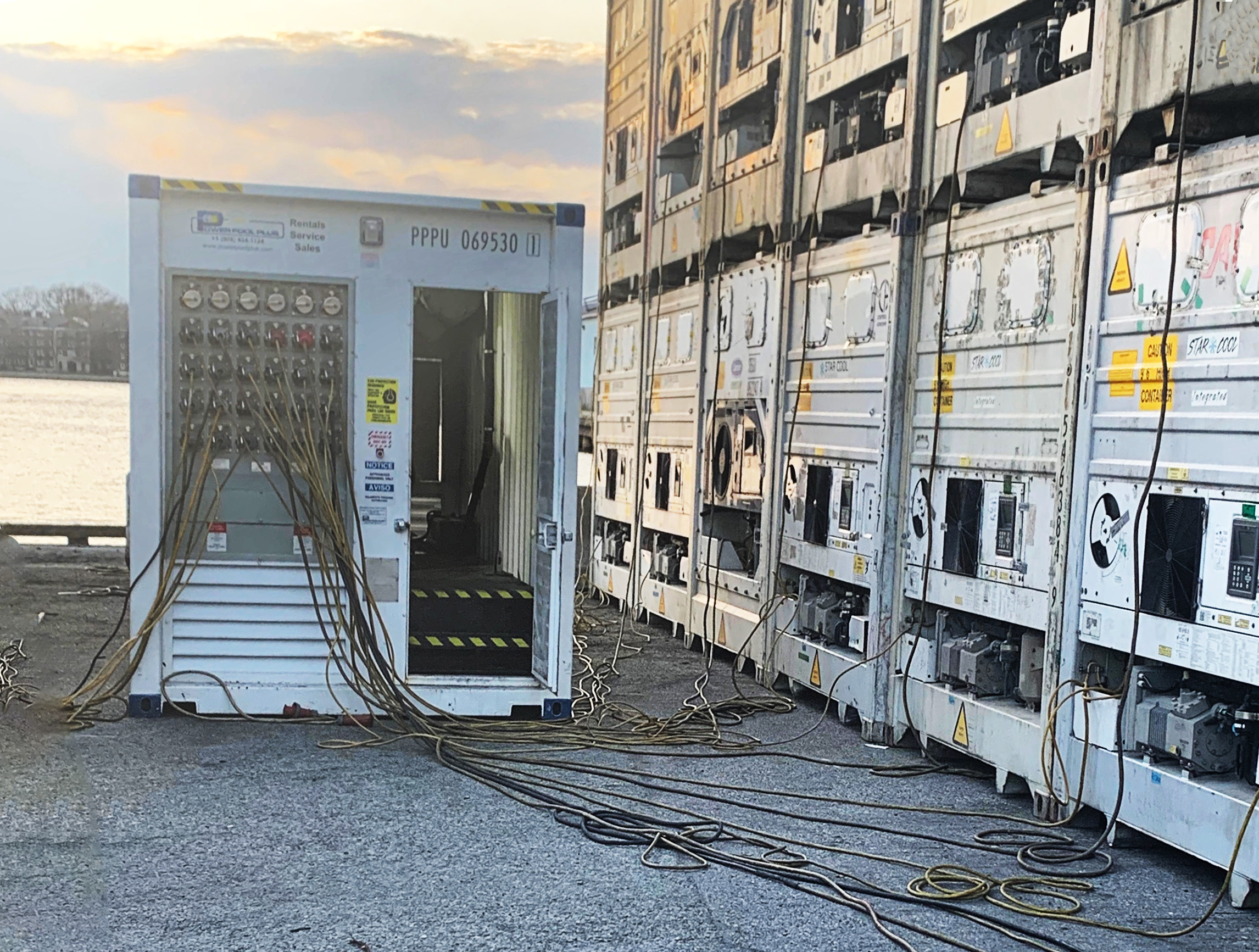 pack operators face:
pack operators face:
Water
- Reefer yards located near open water, face an unavoidable challenge. Temperature changes create condensation, humidity enters through ventilation ports, and the refueling process allows for the introduction of water.
- Water promotes bacterial growth creating one of the more common contaminants; micro-organisms, called diesel bugs, live and die in the fuel forming debris.
- Rust particulate and corrosion on critical engine fuel system components are a result of water in fuel tanks.
Hard Particles
- Windblown sand and dust are common problems in many reefer yards. Often these contaminants enter the fuel tank during refueling.
Soft contaminant particles
- Overheated and degraded diesel fuel enters the tank through the return line. These particles act like gum and coat filters with a black asphaltene-like substance, leading to power loss and engine shutdown.
These are just a few ways that fuel contamination occurs. Understanding these challenges and taking preventative action where possible are the first lines of defense.
Here's what we're doing about it.
We equip all Power Pool Plus rental power packs with a primary fuel filtration system as the first step in removing contaminants.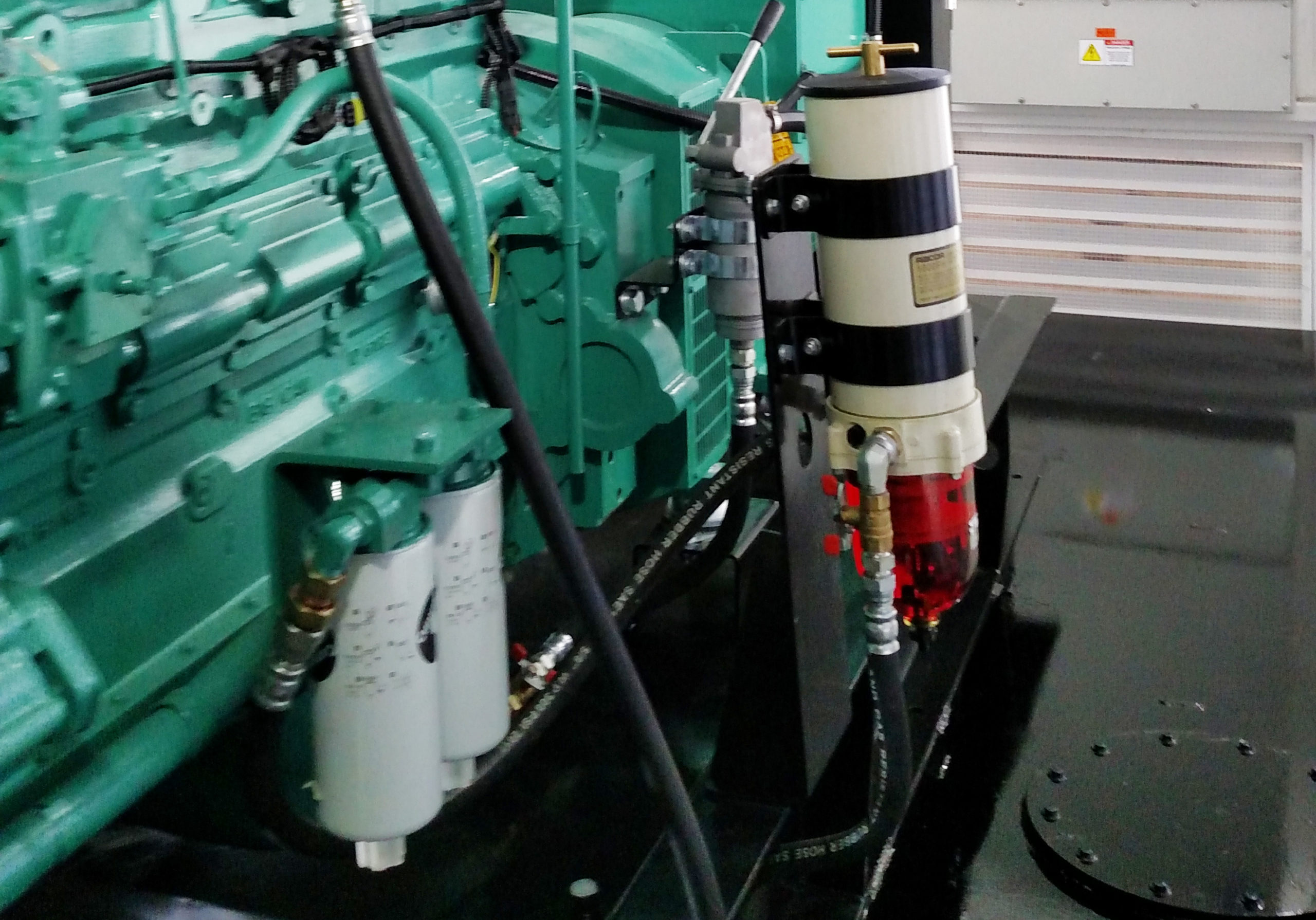
During routine power pack inspections, take note of the filtration system located upstream from the standard fuel filters. Empty the water collection bowl and replace the filtration element as needed.
Doing this simple process will:
- Prevent costly injector damage.
- Increase the operational life of downstream filters
- Save time and money by eliminating unplanned maintenance and unscheduled downtime from fuel system component failure.
A best practice is to keep several extra fuel filters and cartridges on-hand and replace them at the first signs that the engine is starving for fuel.
Ensuring the quality of the fuel is the responsibility of the power pack operator. Don't allow poor fuel quality to affect the performance of your power pack; the critical load of reefer containers under your care is counting on it.
Ted Shelson
VP Marketing
Power Pool Plus
It's all about the cold chain
The need for perishable goods has never been greater. Keeping the cold-chain intact is critical not only to end-users of our reefer generators but to our entire community at large.
Like most companies, Power Pool Plus is doing our best to keep our team safe and healthy amid #COVID19 concerns by maintaining social distancing whenever possible, limiting access into our facility, and allowing those who can work from home to do so.
Please note that our operation remains open and continues to work hard filling orders for both new and re-manufactured Power Packs. Our service team is on-call and ready to serve.
We would like to extend a special thank you to our customers, many of whom are the port operators working on the front lines in areas hardest hit by the corona-virus outbreak.
And thank you to our many vendors that continue to operate and supply us with the raw materials needed to produce quality Power Packs that reefer operators have come to expect from Power Pool Plus.
Having quality fresh food on our shelves will help make the challenges of getting through this crisis just a little more bearable. Together we can all do our part to keep fresh produce moving.
We are here when you need us.
Power Packs, Mobile PortaPacks™, Service, Rentals
5 Ways to Protect Your Power Pack During Emergencies
COVID-19 related events are having a profound effect on local grocery store inventory. The resilience of the supply chain will have a significant impact on the health and welfare of all of us.
Even those that until now may not have fully understood the role that we in the refrigerated transportation industry play in keeping fresh produce on the shelves, they are indeed watching us now.
One key element is the Power Pack reefer generator to ensuring the successful throughput of the perishable cargo under your care.
All of us here at Power Pool Plus remain available to assist where possible. Your team, however, is the first line of defense against unexpected generator shutdowns. And the proper maintenance practices that you follow may make the difference between success and failure.
Here are some fundamental steps that everyone on your team should know in regards to Power Pack maintenance.
- Keep extra fuel filters on hand - Bad fuel is the #1 cause for generator failure. Checking for clogged fuel filters is an excellent first action to power pack shut down. Replace each as needed and be sure to correctly prime each filter before installation. If equipped with a RACOR filtration system, visually check for debris and clean as necessary.
- Avoid low reefer count per Power Pack - In other words, try to limit the times that each power pack is under-loaded, or under 50% capacity. Under-loaded Power Packs will cause a condition known as wet-stacking, indicated by thick black exhaust smoke, which may limit engine performance when you need it most.
- Check Oil Levels Daily - Daily inspection of oil levels, including reserve make-up tanks (if equipped), will prevent surprise shutdowns due to low oil pressure.
- Check Coolant Levels Daily - Change in reefer load quantities from low to high can affect engine operating temps causing some coolant to release from the system. Daily inspection can reduce shutdowns due to low coolant levels.
- Keep up with routine maintenance schedules - The best line of defense against power pack failure is to keep fresh eyes on your machines as frequently as possible. Here are our suggestions:
-
- Every 250 Hours
- Change Oil and Filters
- Change Fuel Filters
- Inspect Belts and Hoses for Wear (Replace as Needed)
- Inspect for Oil and Coolant Leaks
- Address any concerns ASAP or contact Power Pool Plus
- Every 500 Hours
- Same as above PLUS change Air Filters
- Inspect radiator for dust and debris build-up. Note: clogged radiators should only be cleaned by professionals with the right equipment and skill to prevent delicate radiator damage.
- Every 250 Hours
These steps are only a few first response actions to keep your power pack generator healthy and operational. If there are other concerns or questions related to power pack maintenance, please contact Power Pool Plus for more details.

